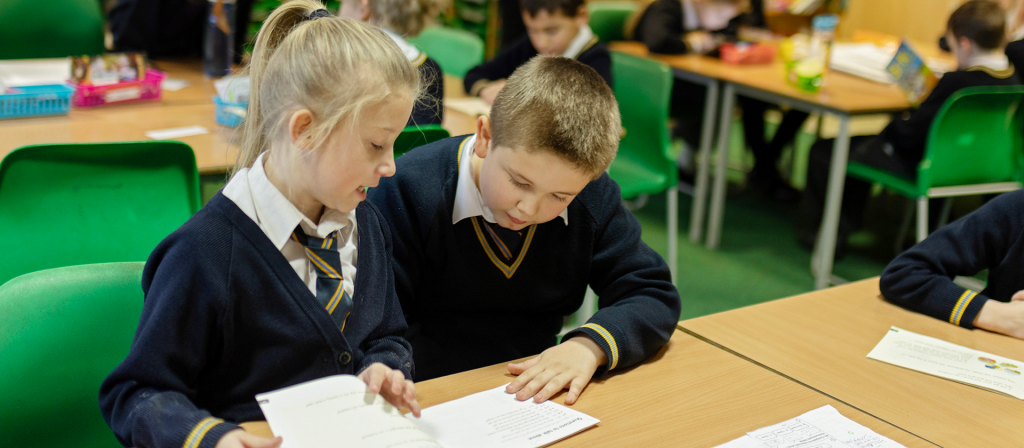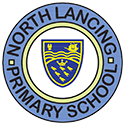
Intent
At North Lancing Primary School, we believe that a quality literacy curriculum should develop children’s love of reading, writing and communication. An absolute key to a child’s literacy development is to ensure children are able to read and develop comprehension skills which will benefit all other areas of the curriculum as well as literacy itself.
We believe that nurturing a culture, where children take pride in their writing and can write clearly and adapt their writing for a range of contexts is key to fluency and confidence. Communication through speaking and listening is also paramount in ensuring children can develop their literacy skills and build resilience and clarity in their language to further their learning.
A clear pathway of progression has been planned for all aspects of literacy, ensuring a secure knowledge-base of the content as prescribed by the National Curriculum. This has been developed to suit our school and our children, to build a rich literary experience as they advance through the primary curriculum. A secure basis in the skills that come through literacy teaching and learning is crucial to enabling our children to access a high quality education.
Implementation
Our aims are embedded across our literacy curriculum but also through the wider curriculum. The rigorous and progressive content we teach offers purposeful and broad opportunities for reading, writing and discussion. We inspire and motivate our children with the breadth of texts and resources we use in our lessons. Cross curricular opportunities are also woven into our planning to make our literacy learning relevant and embedded and apparent in all the language that the children experience.
Our school encourages reading to be a driving dynamic in all aspects of learning. Texts are regularly used across all genre, both discreetly in literacy lessons but also through cross curricular opportunities. We are passionate about developing Reading for Pleasure as we believe a love of reading and books is key to children’s own reading abilities and development. We have reading clubs; celebrate World Book Day; hold Reading Cafe sessions; World Cup of Books and book-talk sessions; integrated reading activities with a local secondary school and other primary schools in the locality; regular school library sessions; visiting authors; prizes for regular readers; certificates for Accelerated Reader word counts; holiday reading challenges; visits from the local library; non-fiction November; as well as daily quiet reading/book sharing and story times.
We use Accelerated Reader from Year 3-6 with Star Reader to track children’s reading. This has been integrated across the school with children encouraged to read at a suitable level of challenge. Children are motivated to hit their reading targets which can be done with their own reading, reading with others or listening to stories read to them. Teachers model reading and encourage children with recommendations and ensure time for the children to recommend books to each other.
Children read regularly in groups and individually. A greater level of scaffolding; access to additional support materials; small group work; and greater level of modelling is available for children who need additional support. Equally, children are encouraged to read and engage in comprehension and questioning in their reading to extend their understanding to work above the expected standard where appropriate.
Phonics are taught from Reception using Read, Write Inc. https://www.ruthmiskin.com/programmes/phonics/about-read-write-inc-phonics/ through to Year 2 and continued into Year 3 for some children alongside the spelling and phonic requirements as set out in Appendix 1 of the English National Curriculum. Children continue to be supported with their phonic development and spellings throughout KS2 using appropriate intervention programmes where required. This is laid out in our school’s progressive framework for phonics and spellings.
Writing opportunities are made across the curriculum and enable the children to explore language and voice through many genre. Children are encouraged to write with independence and confidence, expressing their own knowledge, learning and creativity through language. Editing and redrafting are an integrated part of the process we use in teaching writing so the children are encouraged to self-assess, peer assess and use their analytical skills and experiences from their reading to help mould and shape their writing. Texts from a wide variety of authors with fiction and non-fiction are used as stimuli for language exploration and inspiration.
The skills and knowledge, as required by the curriculum, for punctuation and grammar are taught explicitly but are also constantly referred to as an integrated part of all teaching when writing and reading are used. Opportunities for reinforcement and retrieval are also developed through homework tasks as well as in-class opportunities.
Year group meetings, as well as specific meetings for Year 1 parents and carers (phonics); Year 2 parents and carers (SATS); and Year 6 parents and carers (SATS) are also held to ensure families are kept informed of all the work and content that is covered in class. This is further communicated through the weekly year group bulletins that are sent out.
Book scrutinies and moderation opportunities are carried out regularly to ensure consistency across classes and year groups. This allows the staff to check that all aspects of progression and content are in evidence and congruous across classes.
Marking is applied according to our marking policy. Verbal feedback and modelling writing is considered one of the most valued methods of response to writing and discussion is paramount to this. Children’s work is monitored thoroughly in the books and learning and assessment is rigorously applied to ensure progression for each child.
Impact
Impact for our children is shown through progress; sustained learning; and transferable skills. The implementation of the writing journey is becoming well established and taught thoroughly. Children are becoming more confident writers and enthusiastic and skilled readers. They are able to write independently across any genres by the end of KS2, demonstrating their creativity, writer’s craft and manipulation of grammar and punctuation skills, embedded in all their writing.
Assessment shows that the children at North Lancing are writing and reading largely in line with National expectations by the of KS2 with punctuation and grammar skills above expectation. We anticipate, with our new initiatives in reading, writing and phonic development that our results will at least meet and exceed National expectations for KS1 and for KS2.
More importantly than any other measurable form of assessment, we hope that the children of North Lancing School will all build a love of reading, writing and communicating and will feel confident in doing so. We believe that this is paramount to the success of learning and accessing the curriculum across all subjects. We believe that creativity and passion for language will travel with our children as they continue to grow and learn.
